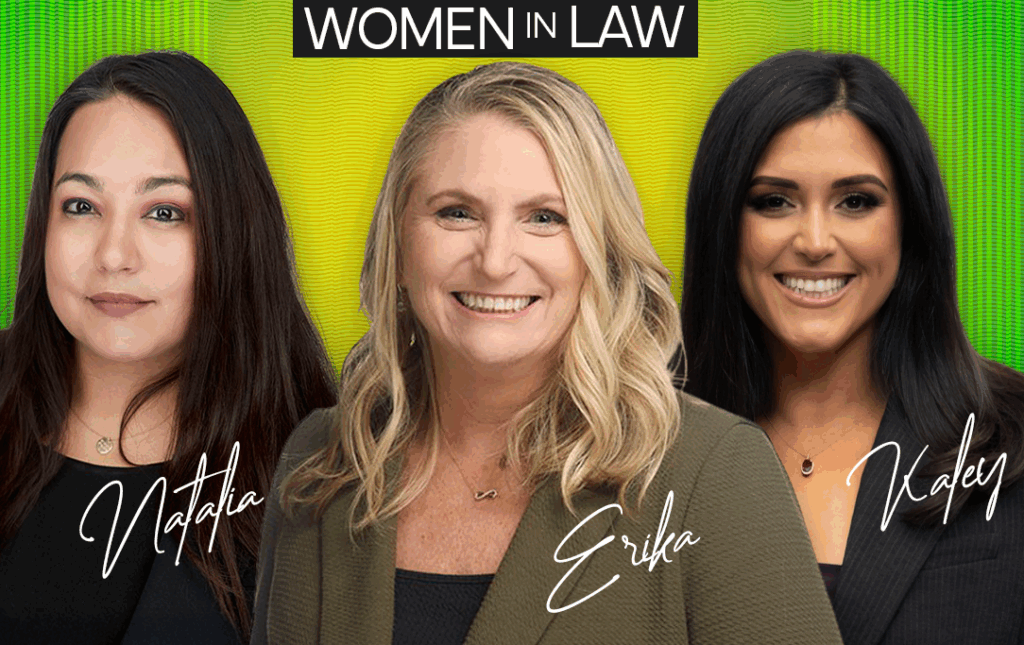FMLA Attorneys
The Family Medical Leave Act (FMLA) was established to protect eligible employees under FMLA-compliant employers who need to take time off of work for specified family and medical reasons for up to 12 weeks per year. The employee is unpaid during their leave, but their job is protected during that time. If an employee is fired, demoted, or does not receive equal compensation and benefits because of their leave, their employers have acted illegally.
Home » Labor Law Attorneys » FMLA Attorneys
Why Should You Consult an Attorney for an FMLA Violation?
The FMLA supports eligible employees so they can balance their work and life responsibilities when reasonable family and medical circumstances arise. Covered employers who must comply with the FMLA include federal, state, and local government employers, private companies with 50 or more employees, and local private and public educational agencies.
Unfortunately, employers may attempt underhanded strategies to fire or demote employees during or after their FMLA leave. If you believe your employer has violated your FMLA rights, you may have a cause to file a claim against them.
What To Expect With Farah & Farah’s FMLA Violation Attorneys
The attorneys at Farah & Farah are not just legal professionals but also experienced and skilled fighters against injustices done to employees by employers who may prioritize profit over following the law. Our labor law lawyers have a deep understanding of the intricacies of employment and labor laws and can guide their clients through the litigation process to hold their employers accountable for their actions.
If you believe you have been wrongfully terminated or demoted during or after FMLA leave, contact Farah & Farah for a free consultation. If you have a case, our experienced labor law attorneys can work with you to seek the compensation you deserve for having your employee rights violated.
What Is the FMLA?
The Family Medical Leave Act of 1993 was enacted to fulfill two fundamental concerns: the needs of American workers and the development of organizations. The former promotes a work-life balance for employees so they don’t have to choose between their families and the job that keeps food on the table. The FMLA protects employees’ positions when they need to take leave from work to support and care for their family or take care of their own medical conditions. It also allows them continued coverage of their group health insurance under the employer, with the same terms and conditions.
Lawmakers believed the FMLA would aid in the development of high-performance organizations. It was the belief that when employers create a strong and durable connection with the employees, in turn, employees would be more likely to commit to fulfilling their duties.
How Do I Become Eligible for FMLA?
There are three requirements that an employee must fulfill before they are qualified for FMLA leave:
- Employees must have worked for a FMLA employer for at least 12 months.
- Employees must have worked for a FMLA employer for at least 1,250 hours within a 12-month period directly before their leave.
- Employees must have worked in a location with 50 or more employees for a FMLA employer within 75 miles.
Employers Required To Follow FMLA
Employers who are required to follow FMLA:
- Private employers who have 50 or more employees who worked 20 or more workweeks in the current or previous calendar year
- Public agencies, including employers working for federal, state, and local governments
- Local private and public educational agencies, including charter schools, public school boards, and primary and secondary schools
Qualifying Life Events for FMLA Protections
FMLA employers must approve employee leave requests that fall under these qualifying reasons:
- Pregnancy or birth of a newborn child and caring for them
- Adoption or fostering of a new dependant in the household
- Caring for a family member (i.e., spouse, children, or parent) with a serious health condition
- A serious health condition that hinders the employee’s capability to perform their job responsibilities
- Emergencies involving an employee, an employee’s spouse, child, or parent who is a military member on active duty or is called to leave for covered active duty
- Providing primary care for a servicemember suffering from a serious health condition or injury
What Is Considered a Serious Health Condition for FMLA Leave?
Serious health conditions that qualify an employee to apply for FMLA involve the employee, their children, spouse, or parents undergoing inpatient care or continuing treatment by a healthcare provider.
Inpatient Care
Receiving inpatient care means spending the night in a hospital, skilled nursing facility, hospice, or residential medical care facility. A serious health condition under inpatient care also includes any period where the employee is incapacitated from fulfilling their daily work responsibilities or is still undergoing aftercare tied to the inpatient care they received.
Continuing Treatment by a Healthcare Provider
Eligible treatment for a serious health condition provided by a healthcare professional can be one or more of the following:
- Any treatments following a period of incapacity for more than three consecutive calendar days that are connected to the same condition
- Pregnancy or prenatal care
- Chronic health conditions
- Permanent or long-term conditions
- Multiple treatments for your health condition(s)
Do I Have To Show Proof of a Serious Health Condition to My Employer?
An employer may require a medical certification from a healthcare provider to ensure the validity of FMLA leave. They may also ask for a second opinion if they doubt the medical certification. If you do not provide your employer sufficient medical verification FMLA leave may be legally denied.
Incomplete Certifications
Employers can deem the certification or authorization incomplete. They are required to write down what additional information they need to complete the certification and give you seven days to fulfill the deficiency. FMLA leave requests may be denied or delayed if the employee does not provide a complete or sufficient certification.
Medical Records
You do not have to give your medical records to your employer. However, the medical certification that an employer may require must show facts and reasons indicating a serious health condition.
The Health Insurance Portability and Accountability Act (HIPAA) privacy act protects you from an employer calling your healthcare provider. Employers may only speak to your healthcare provider about what is contained in the certification after you provide written authorization allowing them to talk to your healthcare provider. Under HIPAA, an employer representative such as a human resource professional, management official, or healthcare provider may contact your healthcare provider.
Can an Employer Ask for Another Certification During My FMLA Leave?
Yes, in certain situations. Here are some of them:
- If your FMLA leave is more than 30 days, your employer may ask for medical recertification linked to your serious health condition every 30 days.
- If your initial return-to-work date is fast approaching and you require an extension, your employer may request a recertification.
- If the initial certification states that the serious health condition and leave will take more than 30 days, the employer must wait to ask for medical recertification until after that specified timeframe.
Can My Employer Ask for a Fit-For-Duty Authorization or Certification?
Yes, your employer may request a certification that you can perform the daily responsibilities your position requires. For every 30 days while you are on intermittent FMLA leave, your employer may ask for a fit-for-duty authorization from your healthcare provider that indicates you can carry out all essential duties.
Your employer may also request a fit-for-duty certification every 30 days from your healthcare provider if you are on a reduced schedule FMLA leave, especially if there are safety concerns based on your serious health condition that might hinder your ability to perform essential tasks. Additionally, if you are returning from an FMLA leave due to a qualifying reason related to a serious health condition, your employer may request a certification from your healthcare provider so that you may resume work.
How Long Can I Use FMLA?
For employees who need to apply for FMLA, your leave can be up to 12 weeks within a 12-month period. If you are caring for a covered servicemember with a serious illness or injury, you may apply for FMLA up to 26 weeks within a 12-month period.
Who Is a Covered Servicemember Under FMLA?
The FMLA states under §825.122 that a covered servicemember is an active member or a veteran of the US Armed Forces.
Anyone who is currently a member of the Armed Forces, including members of the National Guard or Reserves, is going through medical treatment, recuperating from an injury or illness, going through therapy, has an outpatient or temporary disability status, or is suffering a serious health condition or injury is covered.
A covered veteran is a member of the Armed Forces, National Guard, or Reserves who was discharged under conditions (other than a dishonorable discharge) within five years before the employee (caregiver) takes FMLA leave.
Do I Have To Use FMLA All at Once?
Fortunately, no. FMLA leave can be used intermittently or on a reduced schedule. Intermittent leave is taken in blocks of time for a qualifying, singular reason. Reduced schedule leave typically occurs when an employee’s work schedule is changed–it can be a reduction of the number of hours worked per workweek or workday.
What Is Considered the 12-Month Period When FMLA Leave Starts?
The covered employer determines the 12-month period when the 12-week leave happens. We encourage you to read your employee handbook thoroughly to understand requirements, protected leave reasons, and details of when you can take your 12-week (26 if caring for a servicemember) FMLA leave. There are four ways an employer can define the 12-month period for their employees:
- Calendar year
- Any fixed 12-month leave year either starting on the employee’s work anniversary date, a year required by state law, or the start of a fiscal year
- The 12-month period is measured from the date the employee takes their first FMLA leave
- A “rolling” method where the 12-month period is measured backward from the first FMLA leave the employee uses
What If an Employer Does Not Specify When the 12-Month Period FMLA Leave Begins?
If your employer does not state the beginning of the 12-month period when you take your first FMLA leave, then the employee can choose the option that most benefits them. If the employer wishes to change the method for determining the 12-month period they must give a 60-day notice to their employee before the new method is in effect. During the 60-day notice timeframe, any employee needing FMLA leave can choose the most beneficial option to them.
Can I Be Paid During FMLA?
The FMLA provides job-protected, unpaid leave for employees. However, there are a few ways that an employee may receive income during their leave.
- Employers may require employees to use their paid time off during their FMLA leave.
- Employees may be able to use their paid time off during their FMLA leave if their qualifying reason is covered by the employer’s paid time off policy–check your employee handbook or your company’s human resource professional.
- Paid Family Leave (PFL) policies allow workers to receive compensation when taking extended leave time for qualifying reasons.
- Suppose you suffered an injury while on the job; you may be qualified to apply for workers’ compensation and receive benefits. However, you cannot concurrently use your paid time off if you receive workers’ compensation.
Does Florida Have Paid Family Leave (PFL)?
Florida has implemented House Bill 721, the Florida PFL Insurance Act. It is insurance issued to covered employers who offer a benefits program, like life insurance, that can be written into the policy as an amendment or a rider. This additional benefit allows the employee to be paid a portion of the income loss they experience during their FMLA leave.
Florida also offers paid parental leave to State Personnel System employees within the first 12 months in Florida for births or placements.
- Mothers receive compensation for up to seven weeks of their maternity leave immediately after the birth of their child.
- Parents (fathers and mothers) receive two weeks of leave to bond with their new adopted child.
Does Georgia Have Paid Family Leave (PFL)?
At this time, Georgia has not passed or proposed PFL at the state level, using federal FMLA laws instead.
Can I Be Denied FMLA Leave by My Employer?
If an employee has a qualifying reason for FMLA, your employer cannot interfere, restrain, or deny you from exercising your right to take FMLA leave.
An employer may be able to deny you FMLA leave if you do not provide a complete and sufficient certification or authorization from a healthcare provider with the necessary information proving your situation meets FMLA requirements..
Can My Employer Fire Me During or After My FMLA Leave?
Your employer cannot legally terminate you for exercising your FMLA rights. When an employee has filled their requirements to be eligible for FMLA, the FMLA prohibits covered employers from discharging, discriminating, or retaliating against employees who request or attempt to take their FMLA leave.
What Are Examples of FMLA Retaliation?
Unfortunately, even with FMLA being a federal law, some employers will try to act illegally and get away with it. Here are a few FMLA retaliation examples to watch out for:
- Discharging an employee for requesting or attempting to take an FMLA leave
- Changing or reducing the employee’s hours, position, or benefits when an employee returns from their FMLA leave
- Discrimination by trying to dissuade an employee from exercising their right to take an FMLA leave
- Attempting to manipulate employee hours or title an employee’s FMLA leave under their “no-fault” policy
- Giving poor employee evaluations and reviews because of the employee’s FMLA leave which excludes them from future opportunities for raises or promotions
Who Enforces My Right To Use FMLA?
The FMLA is a federal worker protection law. If your state has its own family and medical leave laws and policies, employees are entitled to be protected by all the applicable laws. Employees can count on the U.S. Department of Labor and their Wage and Hour Division (WHD) to enforce the federal law.
If you believe your employer violated your FMLA rights, you can file a complaint with the WHD–in person, by phone, or by mail. You have two years to file a complaint from the date you believe your employer illegally handled your FMLA leave and three years if it was done willfully.
You do not have to file a complaint with the WHD before filing suit against your employer with a legal professional.
Does Florida Have Its Own Family & Medical Leave Laws?
Florida does not have its own state-specified FMLA laws; employees are covered by federal FMLA law. The state does, however, have an extra qualifying reason: the domestic violence leave law, which allows employees who have faced domestic abuse three days of leave within 12 months of the violent act.
Does Georgia Have Its Own Family & Medical Leave Laws?
Georgia has no state-specified FMLA law; employees are protected under federal FMLA law. However, it does have a specified policy that only applies to state employees: An employee who works a minimum of 30-hour shifts per workweek and is employed by an employer with 25 or more employees is allotted sick leave for up to five days within a 12-month period and is a caregiver to a close family member.
What Can You Do if Your FMLA Rights Have Been Violated?
Suppose you have requested an FMLA leave and have gone through the correct steps per your company’s policy, but your employer has treated you wrongfully because of it. You should consider filing a claim to the WHD so they can perform a thorough investigation. Simultaneously, you can file a suit against your employer with a legal professional versed in the employment labor laws.

Contact Farah & Farah’s experienced FMLA violation attorneys today for a free consultation if you’re in Florida or Georgia. We are dedicated to securing the justice and compensation you deserve. You won’t have to pay a dime unless your case is successful.

free case review
Client Testimonials

Related Blogs













